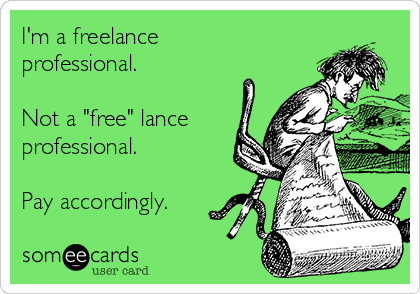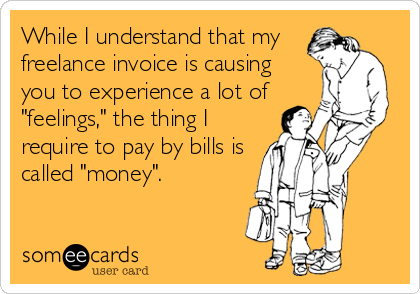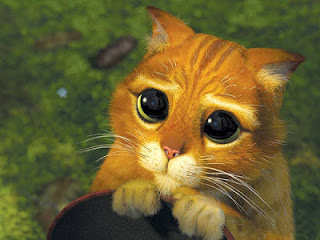Elizabeth Black writes in a wide variety of genres including erotica, erotic romance, and dark fiction. She lives on the Massachusetts coast with her husband, son, and three cats. Visit her web site, her Facebook page, and her Amazon Author Page.
—–
Several years ago, I
made the huge mistake of applying for a writing job from an online site that
required a few “sample articles” as examples of my work. I was to
post them on the web site’s forum, and get as many views as I could. I wasn’t
about to write anything new, so I posted my old stand-by article about the time
I tested the Altoids
mints blow job on my husband. That post alone got more views than anything
else that was posted, and lots of people posted. I posted at least one other
previously published article, which also got an amazing number of views – more
than anyone else. I was confident that I had jumped through all the hoops and
was on my way to paid employment.
I didn’t get the
job.
I didn’t realize
until later that the web site was farming for free content. I did all the
legwork proving the time and product as well as promoting my posts, and the site
didn’t have to do a damned thing. I learned my lesson. I have never again sent
sample articles to any writing job application that required them. That said, I
understand reputable companies need to see examples of my writing to determine
if I’m a good fit. I realize that. Instead of creating new content, I send
links to existing articles so the company may see what I have already
published. Sometimes I get a response, but I usually don’t hear back from those
companies. Now, I don’t bother to send anything to companies asking for sample
articles unless I can provide links. Burned once, shame on you. Burned twice,
shame on me.
Why are writers so
often asked to work for free? Or for “exposure”? Promising a vague
form of exposure is another way of getting free content. There are some things
I do as a means of promotion for which I am not paid. Writing on this blog is
one of them. I gain an audience writing here, and it keeps my name out there in
between books. I’ve written stories for charity anthologies because I like
contributing to a good cause. However, I will not simply give someone a free
story or article just because. No more content farming scams. No more free
writing for web sites that make scads of money from advertising and
subscriptions.
Designer Dan
Cassaro ran into a similar “opportunity” when he was invited by
Showtime – a company clearly needing to rub dimes together to pay for paper
clips – to join a design “contest” he felt was really only a way of
fishing for free content. The contest involved promoting the Floyd
Mayweather-Marcos Maidana boxing match. Those who submitted designs for
Showtime’s use could – to quote the message Cassaro had received from Showtime
– “be eligible for a chance to win a trip to Las Vegas and have your
artwork displayed in the MGM Grand during fight week!” He let Showtime and
everyone else within earshot know exactly what he thought about it, dripping
with sarcasm:
“It is with great sadness that I must
decline your enticing offer to work for you for free. I know that boxing
matches in Las Vegas as extremely low-budget affairs, especially ones with
nobodies like Floyd “Money” Mayweather. I heard he only pulled in 80
Million for this last fight! I also understand that a “mom and pop”
cable channel like Showtime must rely on handouts just to keep the lights on
these days. Thanks a lot, Obama! My only hope is that you can scrape up a few
dollars from this grassroots event at the MGM Grand to put yourself back in the
black. If that happens, you might consider using some of that money to
compensate people to do the thing they are professionally trained to do.”
Why are writers (and
artists in general) so often expected to work for free – or for
“exposure”, as the request is often sugar-coated? Would you expect
your dentist to give you a root canal for free? Do you pay the housecleaner?
The car mechanic? Do your plumber and electrician walk away without monetary
compensation once they do the job you’ve begged them to do because they are
professionals and you are not trained to do the work they do? So why expect a
writer to write for free?
Science fiction
writer Harlan Ellison had plenty to say about those who expect writers to
provide free content. A
DVD company asked him if he’d let them use a very long and very interesting
on-camera interview about the making of “Babylon Five”. He said,
sure, pay me. The woman who called was flabbergasted, as if she expected him to
just fork over his hard work for free – even though she received a
paycheck. Here’s a portion of what he had to say about it.
“Does
your boss get a paycheck? Do you pay the Telecity guy? Do you pay the
cameraman? Do you pay the cutters? Do you pay the Teamsters when they schlep
your stuff on the trucks? Then how—don’t you pay—would you go to a gas station
and ask me to give you free gas? Would you go to the doctor and have him take
out your spleen for nothing? How dare you call me and want me to work for nothing!”
If you want to read his entire rant – and it’s
worth reading – check out “Harlan
Ellison On Getting Paid” at Print Magazine. There is also a link at
that page to a video of his rant. It’s from the film “Dreams With Sharp
Teeth”.
Ellison is not alone. This “we won’t pay
you” schtick is something lots of writers and other artists hear. Last
year, hula hoop performer Revolva
was contacted by Harpo, Oprah Winfrey’s company, to perform at Oprah’s “Live
The Life You Want” event stop in San Jose, California. Revolva was
thrilled – until she realized Harpo had
no intention of compensating her for hours, effort, or travel. In fact, Harpo
intended to not pay any of the creative workers it contacted, despite the fact
that tickets
to this event cost anywhere from $99 to $999 just to get in the door. The
events producers claimed they didn’t have the budget to pay performers. Yes,
that’s right. A billionaire’s tour didn’t have the budget to pay
performers. If Revolva and the other artists wanted To Live The Life They Want,
they could have it – without being paid for it. She chose to not perform. She,
like Ellison, had plenty to say about being not only asked but expected
to work for free:
“Back
to that spiritual lesson you had in store for me, Oprah. Maybe it’s because my
car broke down, and I’m struggling. Maybe it’s because I’ve been doing this for
12 years, and after all the requests for free or discount work, the one by a
billionaire’s tour was the straw that broke my back. But I thought it through,
and achieving “the life you want” is not always easy. The risks we have to
take, to transform this culture into something more nurturing, involve looking
at the way things are and saying, ‘Hey, wait. That’s not cool!'”
It’s ironic that
this tour of Oprah’s was about realizing your self-worth. Apparently, you’re
worth a great deal – as long as you don’t expect to be compensated in cold hard
cash.
Stories like these
strike a nerve with artists, including writers. They grate my teeth. All of us
get these messages, and they really harsh our cool. It’s almost as if those
doing the asking think artists create the works they create only out of
“love” or an internal drive and have no interest or understanding of
how money works. Granted, some writers do write for the love of it, but not all of them.
As Tom Cruise
said in “Jerry Maguire”, Show
Me The Money!
The corollary to
being expected to work for free is being expected to work for peanuts. We’ve
all seen the calls for submissions on places like Craigslist where a potential
employer requires an assload of work – but will only pay $20.00 for said job. I
just counted three such jobs, including one that called for you to be available on weekends. Nope, nope, nope. The
other way of parting writers from their money are Get Rich Quick schemes – something
like “7 Easy Steps To Getting Paid As A Writer”. Write a book telling
people how to make money writing a book and watch the cash pour in. I’ve seen
these ads on Facebook, and the comments are always some form of “f—
off!”
There is an old
adage in creative work like writing – aim high and work your way down. Aim
first for the pro rates. Aim for the big publishers. Aim for the best agents.
Don’t start at the bottom and work your way up because you don’t think you have
enough experience or talent. Don’t downgrade yourself. Don’t settle and demean
yourself by doing a shitload of work for a paycheck that barely covers a Big
Mac, fries, and a Coke.
The sad thing is there
are plenty of writers and other artists who will eagerly take up these offers.
They tend to be newbies who are so green they don’t know any better. They may
not feel they have a right to ask for money. Or they fall for the
“exposure” line. They see stars when Oprah or Showtime contacts them,
and they happily give over free content only to inevitably get little to
nothing out of it, or at the very least not be compensated in a way that the
very wealthy company can easily afford. As long as these people exist, the free
content farms will continue to thrive. Don’t ask to be paid what you’re worth.
Demand it. You have that right.








